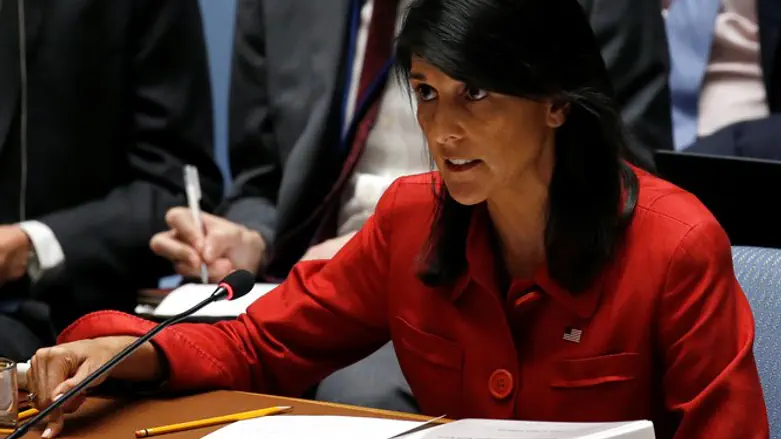
The United Nations General Assembly resolution on 21 December 2017 asking nations not to establish diplomatic missions in Jerusalem (“Resolution”) was adopted by 128 of the 193 member States acting in breach of three specific articles in the UN Charter.
Article 2(7):
“Nothing contained in the present Charter shall authorize the United Nations to intervene in matters which are essentially within the domestic jurisdiction of any state or shall require the Members to submit such matters to settlement under the present Charter; but this principle shall not prejudice the application of enforcement measures under Chapter Vll.”
President Trump’s decisions to recognise Jerusalem as Israel’s capital and move the US Embassy from Tel Aviv to Jerusalem were made in accordance with the Jerusalem Embassy Act passed on 24 October 1995 by the Senate 93-5 and the House 374-37.
Trump’s decisions fell squarely within the framework of America’s domestic jurisdiction.
Other countries wanting to follow America by locating their Embassies in Jerusalem are perfectly entitled to do so free of UN condemnation or interference.
Article 12(1):
“While the Security Council is exercising in respect of any dispute or situation the functions assigned to it in the present Charter, the General Assembly shall not make any recommendation with regard to that dispute or situation unless the Security Council so requests.”
The Security Council had considered the situation brought about by President Trump’s decisions three days prior to the General Assembly meeting - when a draft UN Security Council resolution rejecting US policy shift on Jerusalem was vetoed by the United States.
The General Assembly was not empowered to make any recommendations whilst the Security Council remained seized of the issue - unless the Security Council requested the General Assembly to so act – which was not the case.
The General Assembly’s Resolution was passed in breach of Article 12 (1).
Article 80 (1):
“… nothing in this Chapter shall be construed in or of itself to alter in any manner the rights whatsoever of any states or any peoples or the terms of existing international instruments to which Members of the United Nations may respectively be parties.
This article preserves the legal right of the Jewish people to reconstitute the Jewish National Home in Jerusalem in accordance with the Mandate for Palestine – unanimously endorsed by all 51 member States of the League of Nations in 1922.
50 of those League of Nations member States are members of the United Nations and voted on the Resolution as follows:
11 abstained:
Argentina, Australia, Canada, Colombia, Czech Republic, Haiti, Latvia, Panama, Paraguay, Poland and Romania,
1 did not vote:
El Salvador,
2 Voted against the Resolution:
Guatemala and Honduras
36 voted for the Resolution:
Albania, Austria, Belgium, Bolivia, Brazil, Bulgaria, Chile, China, Costa Rica, Cuba, Denmark, Estonia, Finland, France, Greece, India, Iran, Italy, Japan, Liberia, Lithuania, Luxembourg, Netherlands, New Zealand, Nicaragua, Norway, Peru, Portugal, South Africa, Spain, Sweden, Switzerland, Thailand, Uruguay, United Kingdom, Venezuela,
The votes of these 36 States delimited the legal rights of the Jewish people that their very own respective countries had been instrumental in creating in 1922.
The other 92 member states who voted for the Resolution also apparently had no qualms in ignoring article 80 (1).
Trump was clearly not happy with the UN’s intrusion into America’s domestic affairs - immediately cutting $285 million from America’s proposed 2018 UN Budget with more financial cuts likely to occur.
UN member States reached a new legal low engaging in cavalier conduct involving flagrant breaches of the UN Charter.
The UN slide into irrelevancy continues to gather momentum.